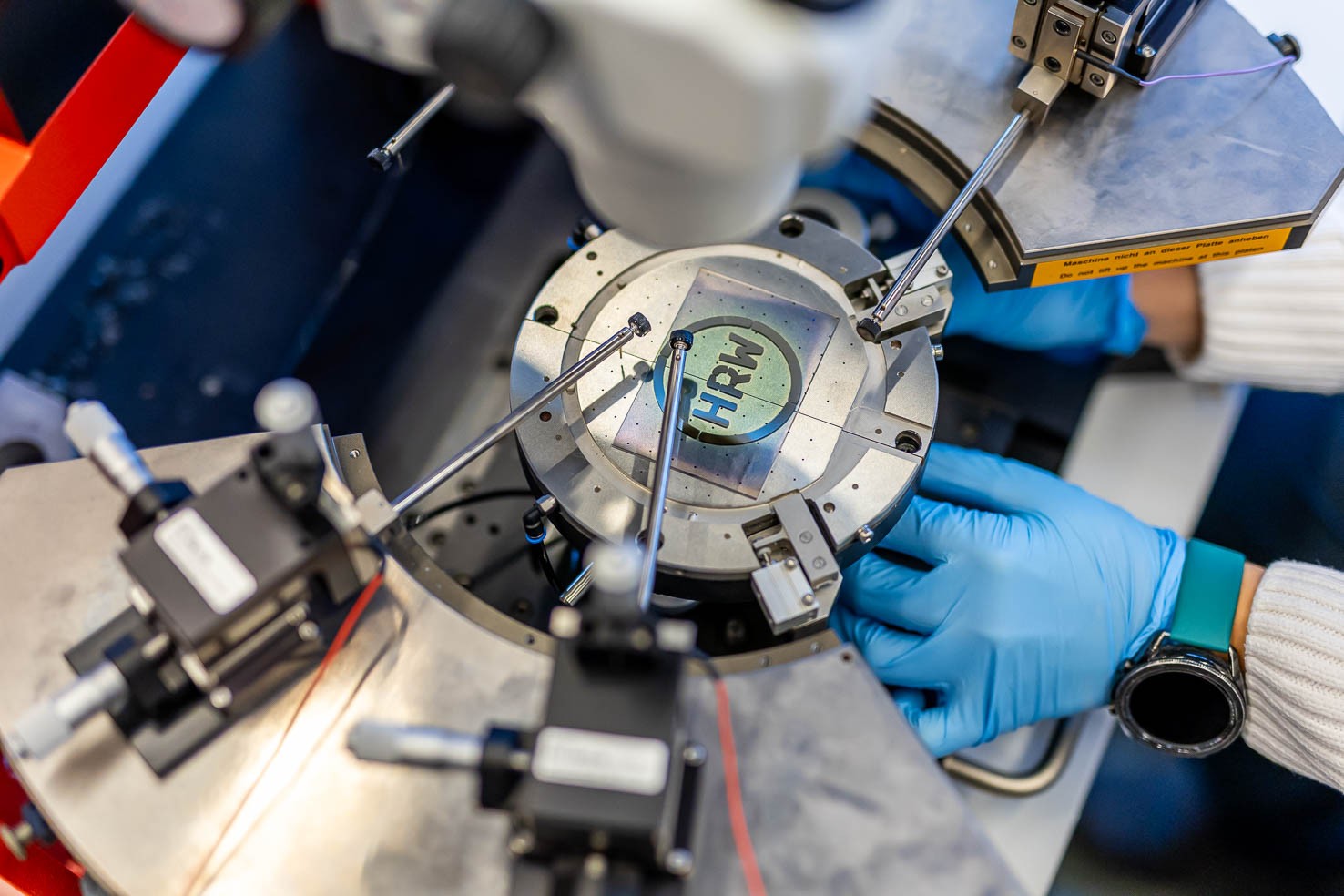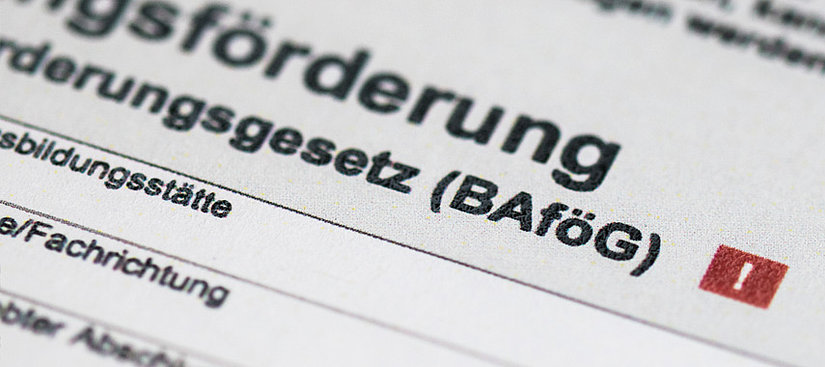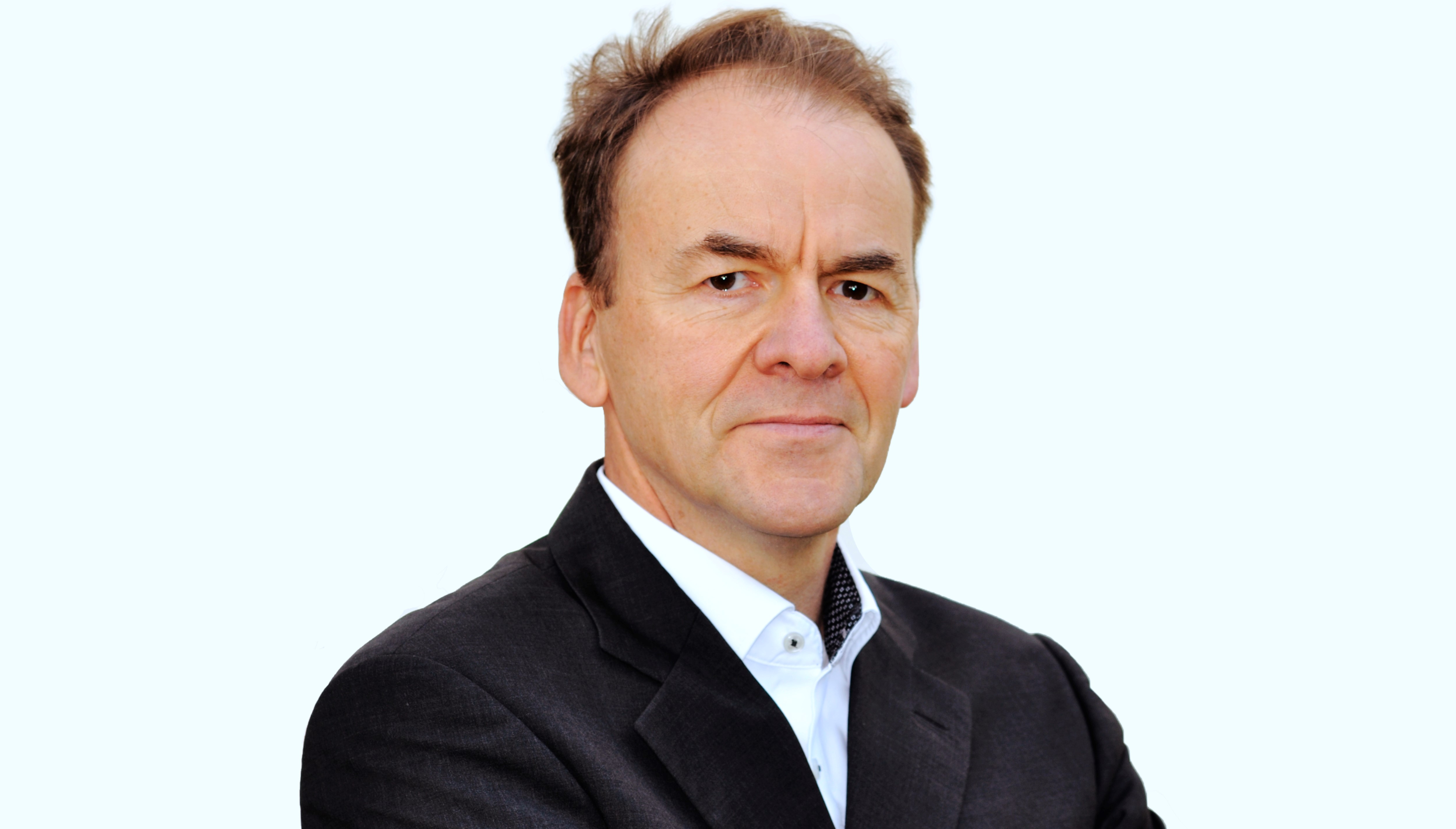Automotive Electronics and Electric Mobility
- Fulltime
- Dual
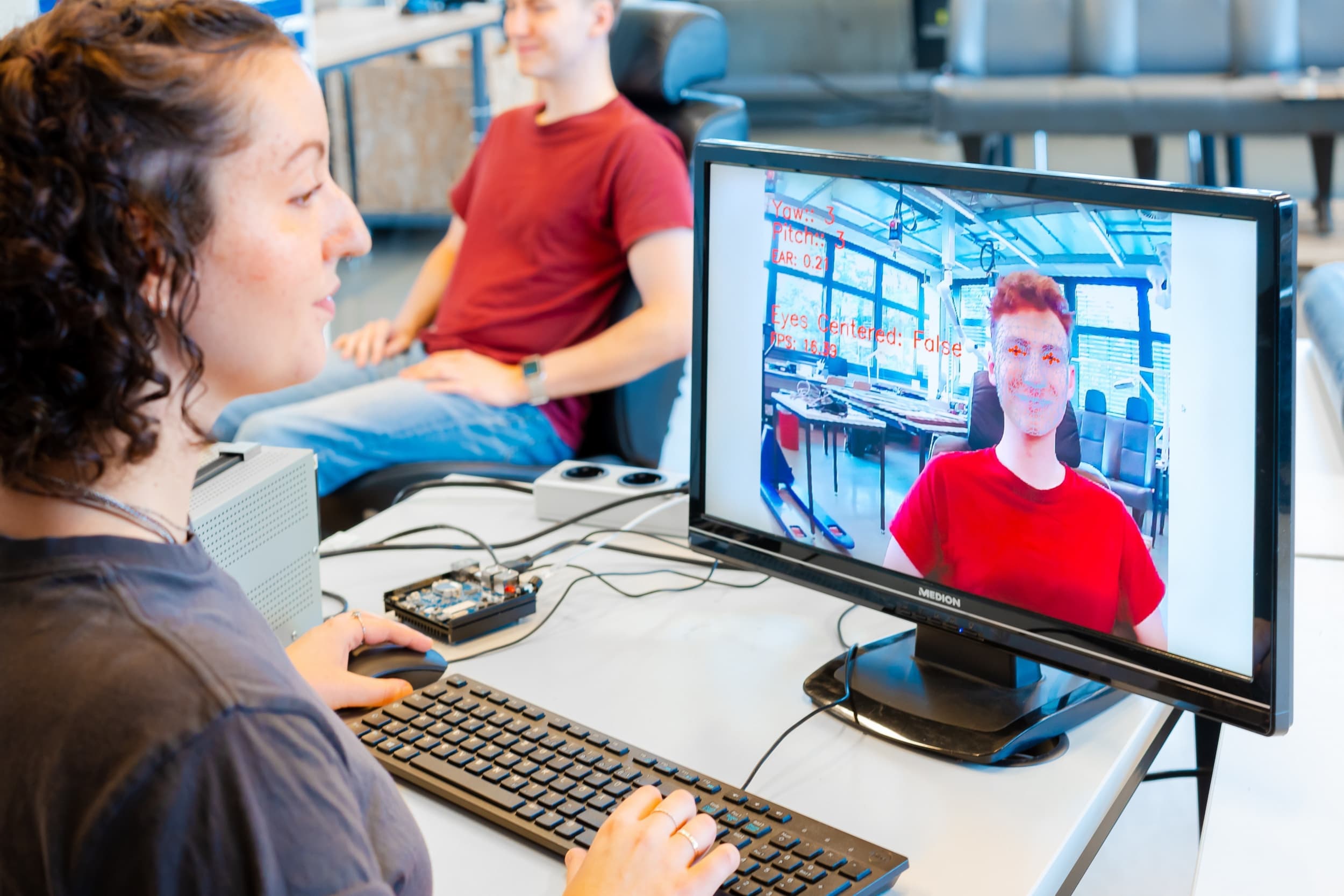
CLIMATE-NEUTRAL MOBILE
Mobility affects all of us. Whether in everyday life or on vacation, we want to be able to reach any place in our surroundings flexibly and, above all, safely. However, as traffic in cities is constantly increasing, we need more electrically powered vehicles that are climate-friendly and also produce significantly less noise than conventional cars. Intelligent sensor systems in vehicles are also becoming increasingly important, as they help us to identify risks at an early stage and avoid accidents.
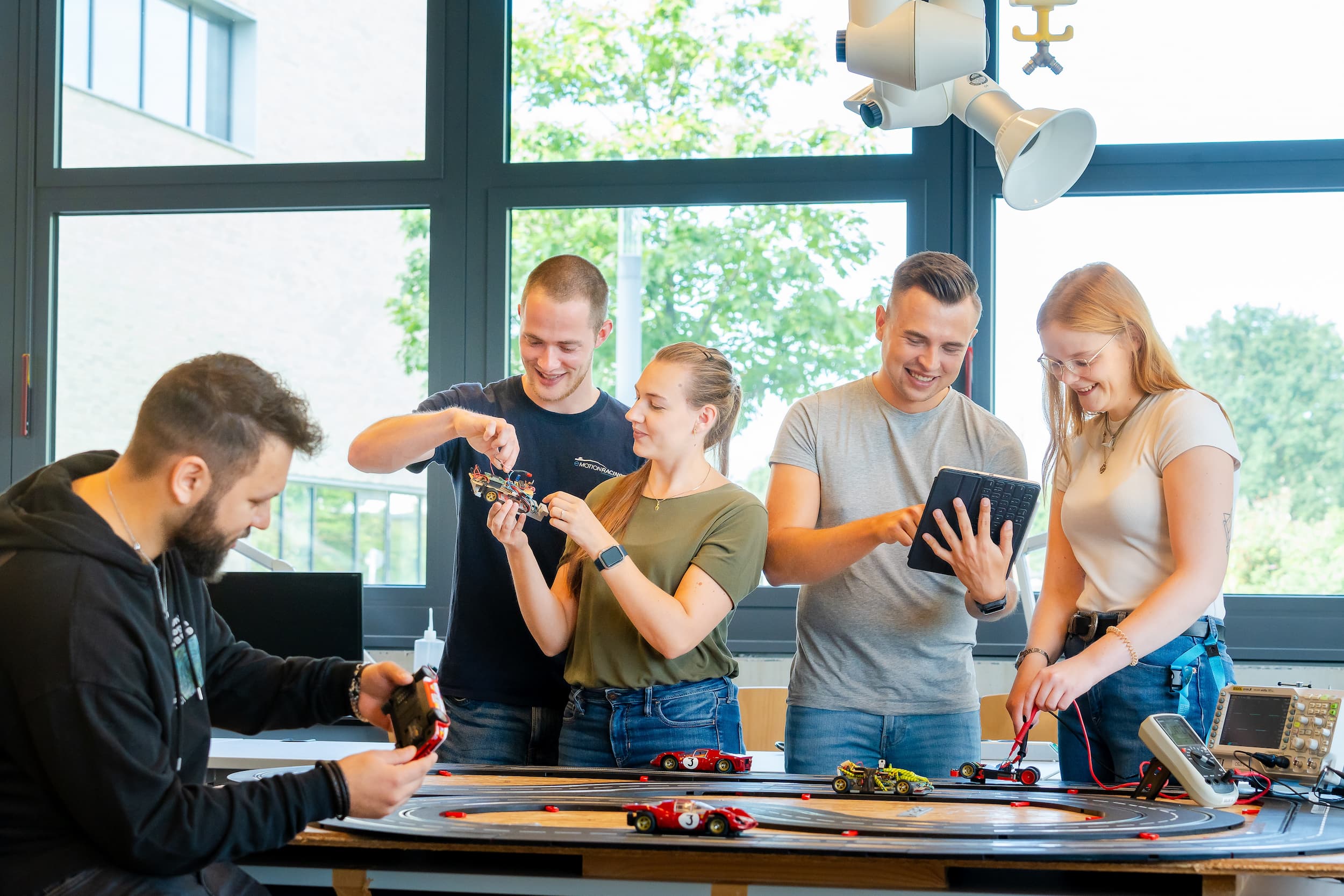
What you can expect
Mobility affects all of us. Whether in everyday life or on vacation, we want to reach any place in our surroundings quickly, flexibly and, above all, safely. However, as traffic in cities is constantly increasing, we need far more electrically powered vehicles that move without exhaust fumes and also produce significantly less noise than conventional cars. Intelligent sensor systems in vehicles are also becoming increasingly important, as they help us to identify risks at an early stage and avoid accidents.
On the practical Vehicle Electronics and Electromobility course, you will learn how to develop electronic systems for vehicles. For example, you will deal with innovative topics such as lighting technology, electric drive technology, lithium batteries and fuel cells, power electronics, intelligent sensors and communication systems.
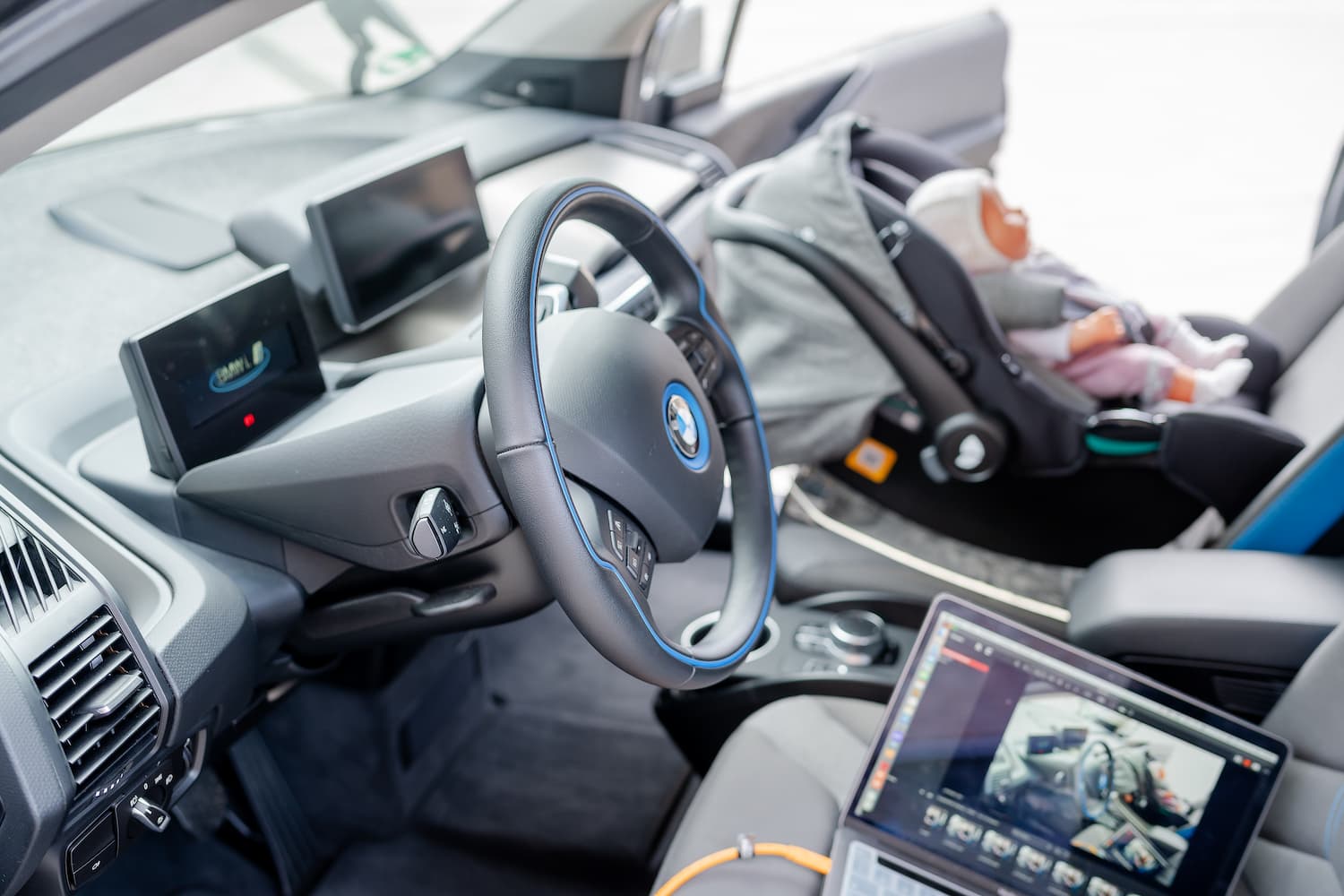
Your study content
The vehicles of the future need new solutions! From the first semester onwards, you will work on these challenges in a team and in a very practical way. In the first project, you will have fun learning the basics of actuator and sensor technology while competing with your self-built autonomous Carrera cars.
What will you learn?
You will work in the laboratory right from the start and familiarize yourself with many situations from your future professional life. You will use your newly acquired knowledge of microelectronics, information and communication technology, modern sensor technology, drive technology and energy storage. You will become experts in drive and high-voltage technology or fuel cell and battery technology.
What you need to bring along
- Language level C1 is required and the language of instruction is German.
- General or subject-specific higher education entrance qualification
- Alternatively: entrance qualification for universities of applied sciences or a qualification recognized as equivalent in the course of professional qualification
- Admission-free
Application process
The application phase for the approval-free Bachelor’s degree programmes for the coming winter semester begins on 01. May 2026 and ends on 15. September 2026.
The application deadlines for this degree programme can also be found on our website (note: the website is only available in German).
If you have any questions regarding your application, please contact our application support team at bewerbung@hs-ruhrwest.de.
